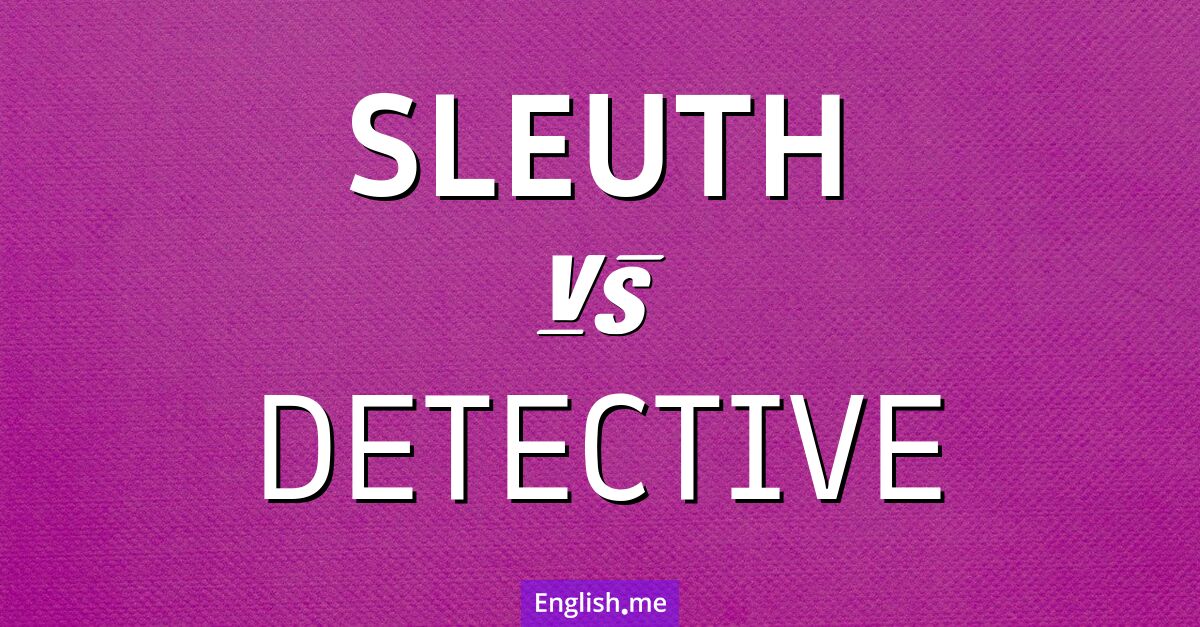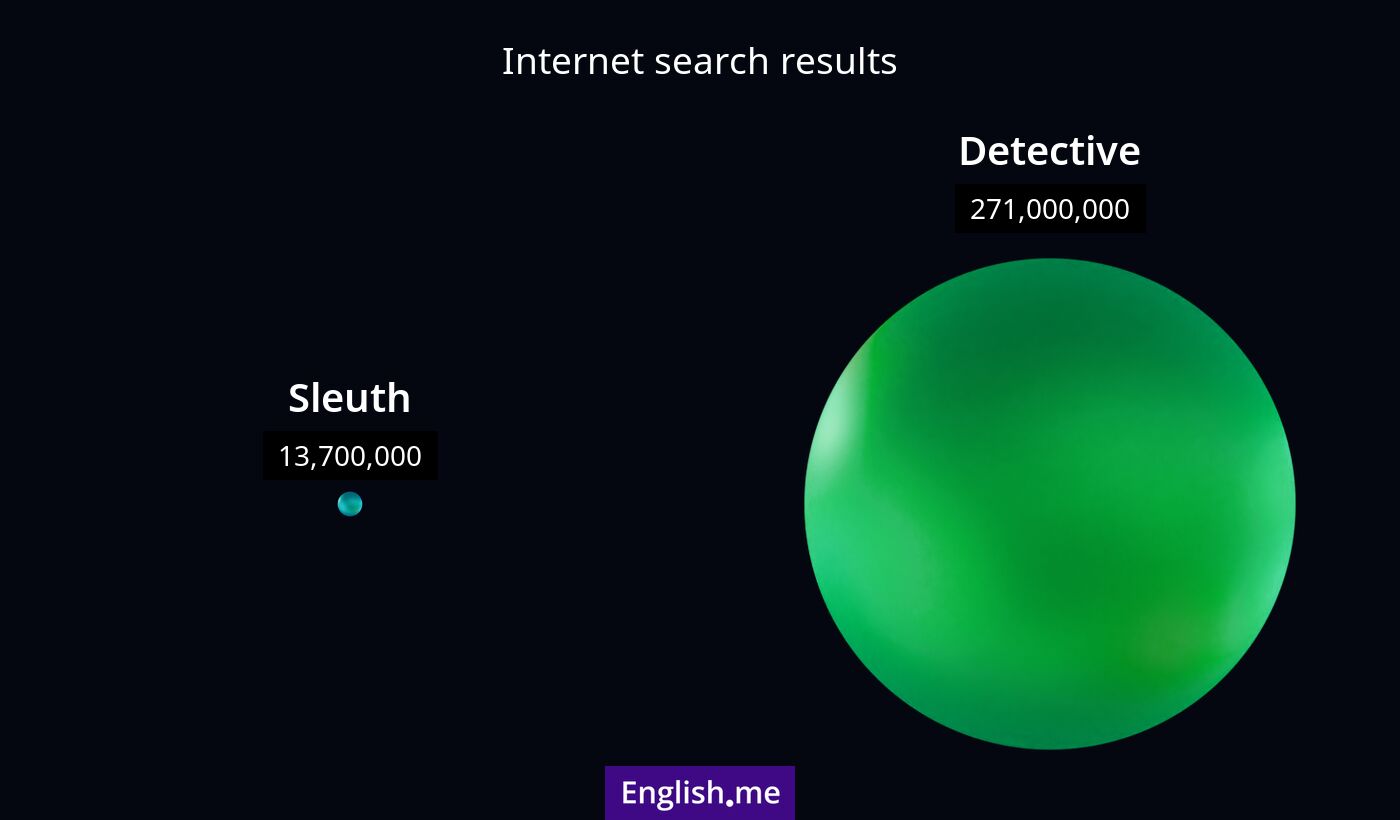"Sleuth" vs. "detective": a word mystery
Reviewed and edited by  Lloyd Cooper 30/11/2024, 14:58
Lloyd Cooper 30/11/2024, 14:58
English.me team member

 What is similar?
What is similar?
Both "sleuth" and "detective" refer to individuals who investigate and solve mysteries or crimes. They are associated with uncovering hidden information, following clues, and piecing together evidence to reach a conclusion.
 What is different?
What is different?
"Detective" is a formal term typically used for professional investigators, especially those employed by law enforcement agencies or private investigation firms. "Sleuth" is a more informal or literary term that can refer to either a professional or amateur investigator. Additionally, "sleuth" can be used as a verb meaning to investigate or search for information, whereas "detective" is solely a noun.
 Which one is more common?
Which one is more common?

 Examples of usage
Examples of usage
Sleuth- The amateur sleuth solved the mystery before the police did.
- She loved to sleuth around old bookstores for rare editions.
- In the story, a young sleuth uncovers a decades-old secret.
- The detective examined the clues left at the crime scene.
- They hired a private detective to investigate the case.
- Detective Ramirez was known for her keen eye for detail.

 English
English español
español française
française italiano
italiano deutsche
deutsche 日本語
日本語 polski
polski česky
česky svenska
svenska Türkçe
Türkçe Nederlands
Nederlands